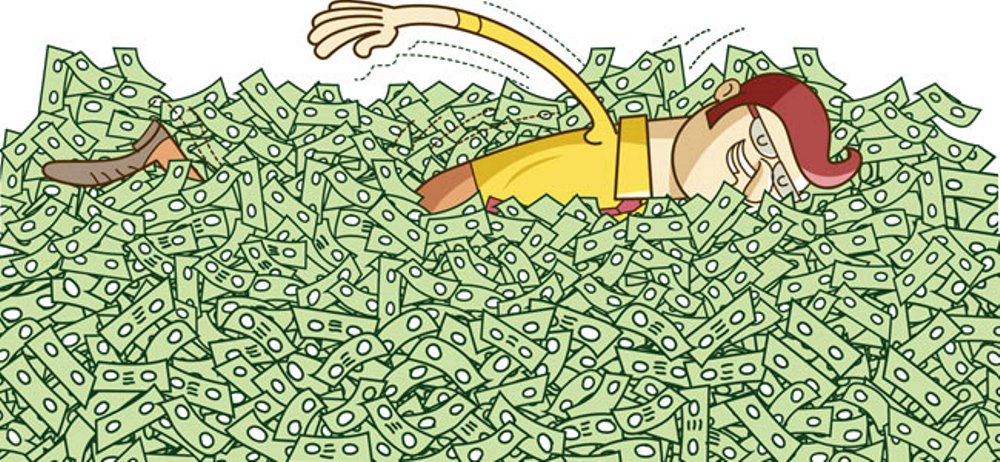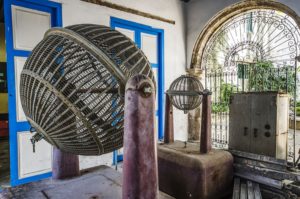LA MALDICIÓN DE LA LOTERÍA. HISTORIA DE LA CUBANA. PHOTOS
Hay quien dice que la lotería, su sucesor la bolita y otros juegos de azar son una especie de maldición para los cubanos en los que históricamente han intervenido todas las clases sociales, analfabetos y letrados, blancos o negros, ricos y pobres, todos igualmente interesados en que la suerte les sonría y no tener que trabajar más nunca para vivir fastuosamente y hacer realidad todos sus anhelos y caprichos.
La gente no valora debidamente un refrán que pasó de moda pero no de vigencia: “de enero a enero el dinero es del banquero” y sigue jugando, acudiendo a supersticiones como guardar el billete en un lugar especial, acompañarlo de amuletos hasta el momento del sorteo, mantenerse fiel a un número preferido, ver a un adivino o brujo, interpretar los sueños y asociarlos a números, ingresar a la tienda donde se va a comprar el boleto con el pie derecho o el izquierdo si el dia es par o impar, frotar el boleto en el vientre de una embarazada o en la cabeza de un calvo, rezarle a San Cono y otros rituales inútiles.
En muchos paises mucha gente está en las nubes esperando el maná del cielo viviendo esa quimera. No importa que las posibilidades sean mínimas, imperceptibles, casi inexistentes, la gente sigue comprando boletos de lotería, raspaditos o lo que sea, el problema es no perder la ilusión de que algún día la vida le cambiará.
El comunismo acabó con nuestro país, lo llevó a ser uno de los más atrasados del planeta, con la mayor emigración respecto a su población en el mundo, sin haber existido una guerra en él e hizo desaparecer los valores históricos y la esperanza de tener una vida mejor. Algunos se sacaron la lotería sin billetes por tener familiares en otros países que les permitieron abandonar este desastre.
Otros tuvieron mucha suerte y se ganaron la llamada “lotería de visas” del gobierno norteamericano. Esos cubanos se ganaron la lotería sin billetes, no tuvieron que arriesgar nada y obtuvieron lo más preciado: la libertad y la posibilidad de labrarse su propio futuro.
Pero la lotería es mucho más que eso porque vivir es el gran premio de la lotería, la experiencia es la acumulación de las loterías que nos hemos ganado y que no hemos cobrado, y para muchos la mejor lotería es el agradecimiento, el respeto o el aplauso, que valen mucho más que el dinero, porque el dinero no compra ningún sentimiento sincero. Al final ganar la lotería no significa nada y la gente pobre que ha ganado la lotería no son ricos, son pobres que ganaron la lotería.
HISTORIA DE LA LOTERIA CUBANA
Con la Real Orden de 27 de enero de 1812 las autoridades coloniales establecieron en Cuba la institución de la Lotería Nacional, bajo los mismos principios de funcionamiento de los de la Madre Patria.
Al terminar el dominio español, los interventores norteamericanos prohibieron la Lotería Nacional, la cual señalaron como fuente de vicios y corrupción colonial, pero en 1903, tras establecerse la República de Cuba, un grupo de senadores elaboraron un proyecto con el objetivo de restablecer la institución. El proyecto se discutió entonces en la Cámara de Representantes y luego de largo debate fue aprobado el 5 de enero de 1905.
No obstante estar aprobado el proyecto por el poder legislativo, el presidente de la República, Tomás Estrada Palma lo devolvió al Congreso un día después y se negó a aprobarlo. Tras la caída de Estrada Palma y la corrupta administración del interventor Charles Magoon, llegó al poder el general José Miguel Gómez (llamado Tiburón, el que llevó la corrupción a niveles nunca antes vistos por lo que se le llamó “Tiburón se baña pero salpica”), quien restableció la Lotería Nacional mediante Ley del 7 de julio de 1909.
Así pasó medio siglo donde la Lotería fue un mecanismo donde probablemente habría corrupción, pero donde la gente contaba algo con qué soñar. El bombo era el artefacto que podía traer suerte a alguna familia.
Muchos hablan del llamado “bombo”, sin saber que a la lotería de visas norteamericana la comparan con las máquinas que de forma aleatoria elegían los números premiados en el sorteo de la Lotería Nacional haciendo girar unas bolitas con los números y las cifras correspondientes con las que serían premiados. Los niños de la beneficencia extraían del bombo una bolita con el número y después otra con la cifra de dinero correspondiente.
Estas transmisiones por radio y televisión buscaban que el evento fuera considerado transparente y honrado, sin trucos, aunque hay muchas teorías que yo personalmente dudo porque eran niños los encargados de seleccionar las bolitas premiadas, aunque la maraña es intrínseca al ser humano, por lo que no la descarto totalmente y asumo que la mayor corrupción estaba en el empleo de lo recaudado.
Una estadística de 1957 asegura que lo que invertían los cubanos todos los años en billetes de lotería, juegos de la charada y otras variantes de la bolita ascendía a entre noventa y cien millones de pesos, mil millones de dólares a los precios actuales. Una cifra verdaderamente gigantesca.
En 1968, con la destructiva Ofensiva Revolucionaria y tras 156 años de existencia, desapareció la lotería y se declararon ilegales todos los juegos. Pero la gente siguió jugando. La lotería se acabó, pero la avidez del cubano por el juego no.
Y qué mejor sustituto que aquel difundido por los emigrados chinos que identificaban a los números con animales, objetos o situaciones: la charada, la bolita o la china.
En Cuba la “bolita” representa mucho más que un juego de azar o una adivinanza basada en los números o en los astros, es casi una institución nacional, ya sea legal, las autoridades se hagan de la vista gorda o la prohiban totalmente como hizo la dictadura castrista.
THE CURSE OF THE LOTTERY. HISTORY OF THE CUBAN. PHOTOS
There are those who say that the lottery, its successor the ball, and other games of chance are a kind of curse for Cubans in which all social classes have historically participated, illiterate and literate, white or black, rich and poor, all equally interested. in that luck smiles at them and never have to work again to live lavishly and make all their desires and whims come true.
People do not properly value a saying that is out of fashion but not valid: “from January to January the money belongs to the banker” and continues to play, resorting to superstitions such as keeping the bill in a special place, accompanying it with amulets until the moment of the raffle, staying true to a favorite number, seeing a fortune teller or sorcerer, interpreting dreams and associating them with numbers, entering the store where you are going to buy the ticket with the right or left foot if the day is odd or even, rubbing boletus on the belly of a pregnant woman or on the head of a bald man, praying to San Cono and other useless rituals.
In many countries, many people are in the clouds waiting for manna from heaven living in that chimera. It does not matter that the possibilities are minimal, imperceptible, or almost non-existent, people continue to buy lottery tickets, scratch-off tickets, or whatever, the problem is not to lose the illusion that one day life will change.
Communism put an end to our country, made it one of the most backward on the planet, with the largest emigration in relation to its population in the world, without having had a war in it, and made historical values and the hope of having a better life. Some won the lottery without tickets because they had relatives in other countries that allowed them to leave this disaster.
Others were very lucky and won the US government’s so-called “visa lottery”. Those Cubans won the lottery without tickets, they did not have to risk anything and they obtained the most precious thing: freedom and the possibility of carving out their own future.
But the lottery is much more than that because living is the great prize of the lottery, experience is the accumulation of the lotteries that we have won and that we have not collected, and for many, the best lottery is gratitude, respect or applause, which are worth much more than money, because money does not buy any sincere feeling. In the end, winning the lottery means nothing, and the poor people who have won the lottery are not rich, they are poor people who won the lottery.
HISTORY OF THE CUBAN LOTTERY
With the Royal Order of January 27, 1812, the colonial authorities established in Cuba the institution of the National Lottery, under the same operating principles as those of the Mother Country.
At the end of Spanish rule, the North American interveners prohibited the National Lottery, which they pointed out as a source of colonial vices and corruption, but in 1903, after the Republic of Cuba was established, a group of senators elaborated a project with the objective of re-establishing the institution. . The project was then discussed in the House of Representatives and after a long debate it was approved on January 5, 1905.
Despite the bill being approved by the legislature, the President of the Republic, Tomás Estrada Palma returned it to Congress a day later and refused to approve it. After the fall of Estrada Palma and the corrupt administration of the intervener Charles Magoon, General José Miguel Gómez (called Tiburón) came to power, the one who took corruption to levels never seen before for what was called “Shark bathes but splashes” ), who re-established the National Lottery through the Law of July 7, 1909.
Thus, half a century passed where the Lottery was a mechanism where there would probably be corruption, but where people had something to dream about. The drum was the artifact that could bring luck to a family.
Many speak of the so-called “hype”, without knowing that the US visa lottery is compared to the machines that randomly chose the winning numbers in the National Lottery draw by spinning balls with the numbers and figures corresponding to the that they would be awarded. The children of the charity extracted from the drum a ball with the number and then another with the corresponding amount of money.
These radio and television transmissions sought for the event to be considered transparent and honest, without tricks, although there are many theories that I personally doubt because children were in charge of selecting the winning balls, although the tangle is intrinsic to human beings, so I do not totally rule it out and I assume that the greatest corruption was in the use of the proceeds.
A statistic from 1957 assures that what Cubans invested every year in lottery tickets, charade games and other variants of the ball amounted to between ninety and one hundred million pesos, one billion dollars at current prices. A truly gigantic number.
In 1968, with the destructive Revolutionary Offensive and after 156 years of existence, the lottery disappeared and all games were declared illegal. But people kept playing. The lottery is over, but the Cuban’s avidity for the game is not.
And what better substitute than the one spread by Chinese emigrants who identified numbers with animals, objects, or situations: the charade, the ball, or the Chinese ball.
In Cuba, the “little ball” represents much more than a game of chance or a riddle based on numbers or the stars, it is almost a national institution, whether legal, the authorities turn a blind eye or totally ban it as the Castro dictatorship did.
Agencies/ Wiki/ Carlos RodriguezB./ Extractos/ Excerpts/ Internet Photos/ Arnoldo Varona/ www.TheCubanHistory.com
THE CUBAN HISTORY, HOLLYWOOD.



 LA MALDICIÓN de la Lotería. Historia de la Cubana. PHOTOS.* THE CURSE of the Lottery. History of the Cuban. PHOTOS.
LA MALDICIÓN de la Lotería. Historia de la Cubana. PHOTOS.* THE CURSE of the Lottery. History of the Cuban. PHOTOS.







